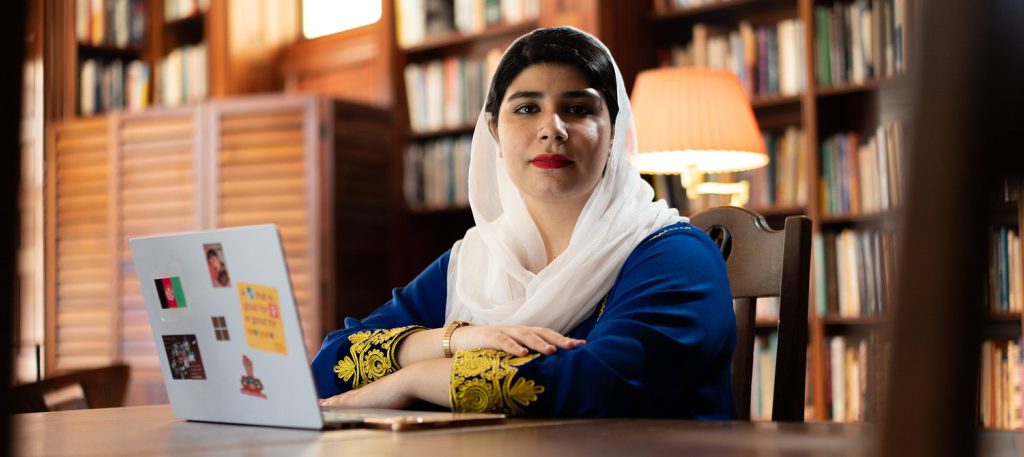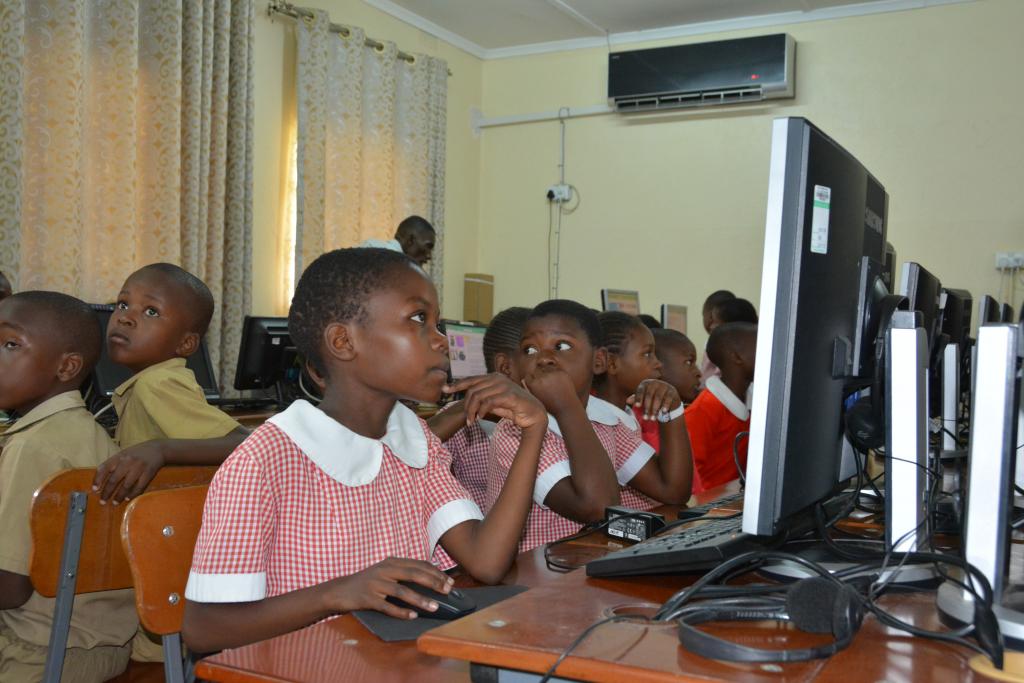As South Africa’s former president, Nelson Mandela, said during his speech in 2003 commemorating the launch of Mindset Network (non profit organization creating and delivering high quality, free educational content to students in South Africa):
“Education is the most powerful weapon which you can use to change the world.’’
Source: Project by Tri7 Entertainment
Less than 20 years later, in 2021, the Taliban regains power in Afghanistan, depriving girls and women of the right to education. This makes almost 80% (2.5 million) of school-aged Afghan girls above the age of 12 out of school, while nearly 30% of girls in Afghanistan have never entered primary education. 1,2 million girls were denied access to secondary schools and universities. Now Afghanistan is one of the countries in the world with restrictions on girls and women education. How is it possible that in the twenty-first century, access to education is still a privilege for a select few?
Source: Acer Discover
The importance of education’s role in the SDGs
Education is one of the Sustainable Development Goals (SDGs) and there is no doubt that it also plays an important role in efforts to implement all other SDGs. Nevertheless, data shows that we are still facing a crisis in education worldwide. For example, according to UNESCO’s report six out of ten children cannot read and understand a simple story at age of 10, whereas an estimated 244 million children and youth are still out of school.
During United Nations’ Transforming Education Summit in September 2022, which was a response to a global crises in education, it was decided that the International Day of Education 2023 would be a global platform to sustain political mobilization to advance SDG4 (as the 2023 is a mid-point since the Agenda 2030 was adopted) and dedicated to Afghan girls and women. This dedication turns our eyes to Afghanistan and other countries where access to education is still limited. Education is and should always be a human right regardless of origin, gender or place of residence. It’s also a tool for other sustainable development goals.
Source: Graphics by Global Health & Education
“To invest in people, prioritize education”
On January 24th 2023 in the United States, the conference ,,International Day of Education 2023: To invest in people, prioritize education” took place. One of the panelists during this event was Shabana Rasikh, Founder of SOLA – School of Leadership Afghanistan which is the only boarding school for Afghan girls operating in Kabul from 2016 to 2021, then relocated to Rwanda since the political shift in Afghanistan. SOLA associated together Afghan girls whose desire for the right to education was stronger than a fear of the Taliban regime. On August 15, 2021 they left Kabul to save their right to education by getting this chance in Rwanda.
Source: The fall of Kabul and SOLA’s departure from Afghanistan by SOLA
During her speech, Shabana Rasikh stated that we need global investment in ensuring that Afghan females have access to education in their nations of residence, deepening investment in online learning and continuing to innovate safe, effective and reliable means of reaching those girls still staying in Afghanistan.
“What is one girl worth? She is worth everything. And she can do anything.”
Shabana Rasikh
Support is needed on site…

Source: Global Citizen
Another panelist was Pashtana Dorani, an Executive Director of LEARN AFGHANISTAN– digital school network, offering free online courses for grade 1 to 12. The organization has also developed tools to learn outside of school, as well as offline apps which allow students to continue learning without internet access. Pashtana focused on some solutions in response to the problem of education in Afghanistan. She highlighted the need to decolonize the funding from among others UN or World Bank and make it more accessible for solutions within Afghanistan. World leaders should localize funding methods and access them for local people. Pashtana Dorani’s speech was a call for world leaders to support activists who have taken initiative to create space for development within Afghanistan – to stand with Afghan people rather than meeting Talibans.
Pashtana’s words made me check to what extent the UN provides assistance in the form of financing education in Afghanistan. On its website, UN allows you to check funding for 2022, 2023 or all years. In 2022, available resources amounted to $3.6 billion, of which 10.2% was allocated to SDG 4 – quality education. In 2023, available resources are $2.6 million, which is one million less than in the previous year, and SDG 4 receives only 2.7% of this.
How does this data relate to the decision that the International Day of Education 2023 would be dedicated to the issue of female education in Afghanistan? Why is it that after the Transforming Education Summit in September 2022 and the emphasis on this problem, the funds allocated to education are decreasing and constitute such a small percentage of the financing of the SDGs?
The role of ICT in completing SDG 4

There is no doubt that in times of such great progress in digitalization, ICT practices can play an important role in the process of expanding access to education and, consequently, accelerating progress towards SDG 4. The global pandemic of COVID-19 has made this even more necessary by moving education in schools to online meetings. Digital learning is certainly a useful tool, but it also faces many challenges in countries such as Afghanistan.
- Limited access to the Internet is one of the main challenges. Lack of internet or an unstable connection cannot provide adequate access to educational tools located on the network.
- Low digital skills are another challenge for young people, especially in developing countries where there is a limited number of trained staff in this field.
- The language barrier in creating digital learning platforms is an important issue affecting the entire learning process. If educational platforms or other resources are not created in indigenous languages, it will not be possible to make progress in education in developing countries. Learn Afghanistan is an example in an organization that has created online education opportunities in two indigenous languages – Pashto and Dari.
- The biggest challenge is… funding. Without appropriately localized financing, development and access to ICT in the field of education is not possible. Education in the form of ICT apprenticeships is undoubtedly a costly investment, so world leaders should focus their efforts on providing funds where they are needed immediately.
Sustainable development goal 4 – quality education is a challenge that has been slowed down on a global scale by public health crisis, repressive regimes, terrorism which can negatively impact access to education entirely, or quality education, but the situation in Afghanistan shows that sometimes it is difficult to talk about progress in a situation where there is no access to education at all. Being halfway towards 2030, global efforts should focus on allocating funds to regions excluded from access to education, increasing the number of trained educators and developing technologies that allow access to learning platforms both online and online, creating them in indigenous languages.
But will this be enough to achieve the goals set out in the 2030 Agenda? Where should we place education in the implementation of the SDGs? What percentage of SDG funds should be devoted to financing SDG4? Without a doubt, each of the SDGs plays a significant role in achieving sustainable development, but how important role does SDG 4 play in your opinion?
I will appreciate all your thoughts and comments!

